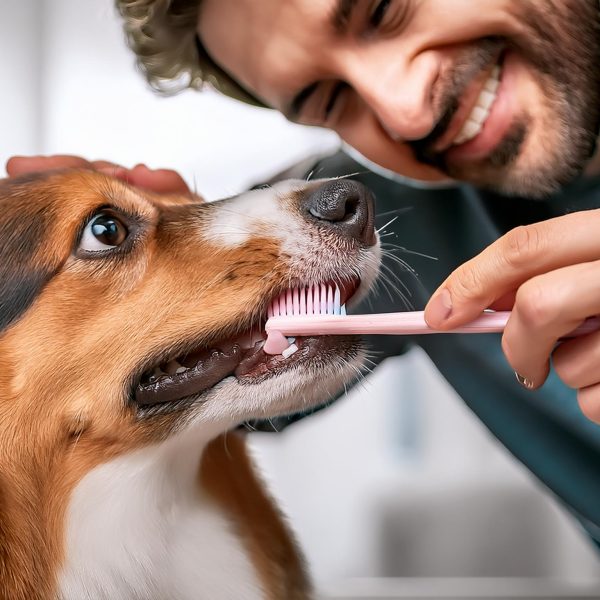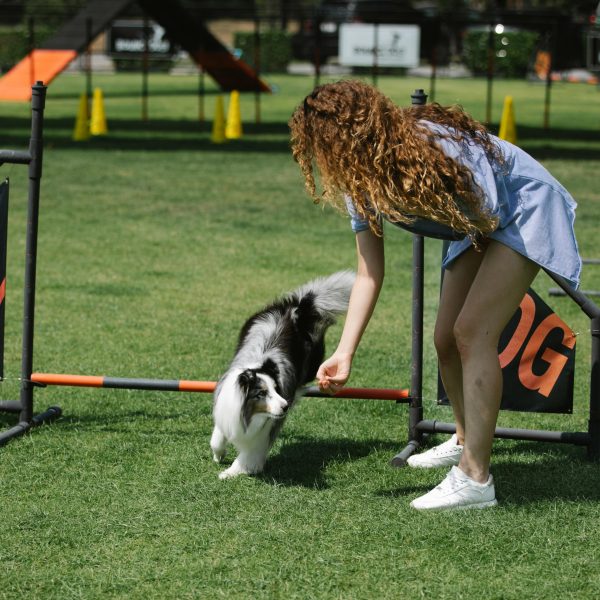In recent years, the landscape of pet healthcare has expanded to include alternative and complementary therapies. Pet owners are now exploring unconventional methods to improve the health and well-being of their beloved companions. Among the growing options, acupuncture, chiropractic care, and herbal remedies have garnered significant attention. These approaches, originally utilized for humans, are now being embraced as effective ways to address pain, enhance mobility, and tackle various health concerns in animals.
Acupuncture for Pets: Applying Ancient Wisdom
Originating in ancient China, acupuncture is a time-honored practice that involves inserting thin needles into specific points on the body to stimulate the flow of energy, or Qi, and promote healing. This concept revolves around the belief that energy flows through meridians within the body. In recent times, veterinary medicine has increasingly adopted acupuncture as a non-invasive, medication-free method to manage pain and improve the quality of life for pets.
When applied to animals, acupuncture is thought to have similar effects as in humans. By stimulating specific points, acupuncture may trigger the release of endorphins—natural pain relievers—and improve blood circulation in targeted areas. This is particularly advantageous for pets dealing with conditions such as arthritis or musculoskeletal issues.
A significant advantage of acupuncture is its versatility; it can be applied to a wide range of animals, from dogs and cats to horses and even small mammals like rabbits. However, not all pets are suitable candidates for acupuncture. Prior to pursuing this treatment, it is essential to have a qualified veterinarian trained in acupuncture evaluate the pet’s condition.
Aligning Pet Health: The Importance of Chiropractic Care
Chiropractic care, originally a human therapy, has transitioned into the realm of pet healthcare. This practice focuses on aligning the spine and nervous system. Just as misalignments in humans can lead to discomfort, similar issues in pets can impact their overall well-being. Animal chiropractors use adjustments to realign the spine and joints, aiming to restore nervous system function and facilitate healing.
Chiropractic care is commonly sought for pets experiencing mobility problems, such as difficulty walking, limping, or signs of discomfort. It can be especially beneficial for pets recovering from injuries, coping with chronic pain, or engaging in physically demanding activities.
When considering chiropractic care for pets, collaboration with certified animal chiropractors who have undergone proper training is crucial. Moreover, integrating treatment into a comprehensive care plan that takes into account the pet’s overall health and any underlying medical conditions is essential.
Harnessing Nature: Herbal Remedies for Pets
Herbal remedies have been employed across cultures for centuries to address a range of ailments. Similar to humans, pets can also benefit from carefully selected botanicals. These remedies are administered in various forms such as teas, tinctures, powders, and capsules, tailored to meet the unique needs of animals.
For instance, chamomile and valerian root are often used to calm pets, while turmeric and ginger possess anti-inflammatory properties that can provide relief to animals with arthritis. Milk thistle is recommended for liver support, and Echinacea can help boost the immune system.
When considering herbal remedies for pets, it is imperative to consult with a veterinarian experienced in animal medicine. Some herbs safe for humans may be toxic to animals, highlighting the importance of proper dosing and administration to avoid adverse effects.
Complementary, Not Replacements
While acupuncture, chiropractic care, and herbal remedies offer tangible benefits for pets, it’s crucial to emphasize that they should never replace standard veterinary care. These methods serve as complementary approaches, working in tandem with conventional treatments to improve overall well-being.
Before embarking on any alternative therapy journey for pets, pet owners must conduct thorough research, seek recommendations from reliable sources, and, most importantly, consult with a qualified veterinarian. The expertise of the veterinarian is indispensable in assessing the appropriateness of these treatments for animals, identifying any contraindications, and ensuring a comprehensive and holistic approach to pet health.
In conclusion, the realm of complementary therapies for pets is expanding, offering pet owners additional options to enhance the health and happiness of their furry companions. Acupuncture, chiropractic care, and herbal remedies draw from both ancient wisdom and modern understanding to provide tangible benefits. As pet owners increasingly explore these methods, it is imperative to approach them with thoughtfulness and guidance from qualified professionals to achieve the best possible outcomes for our cherished animal friends.








